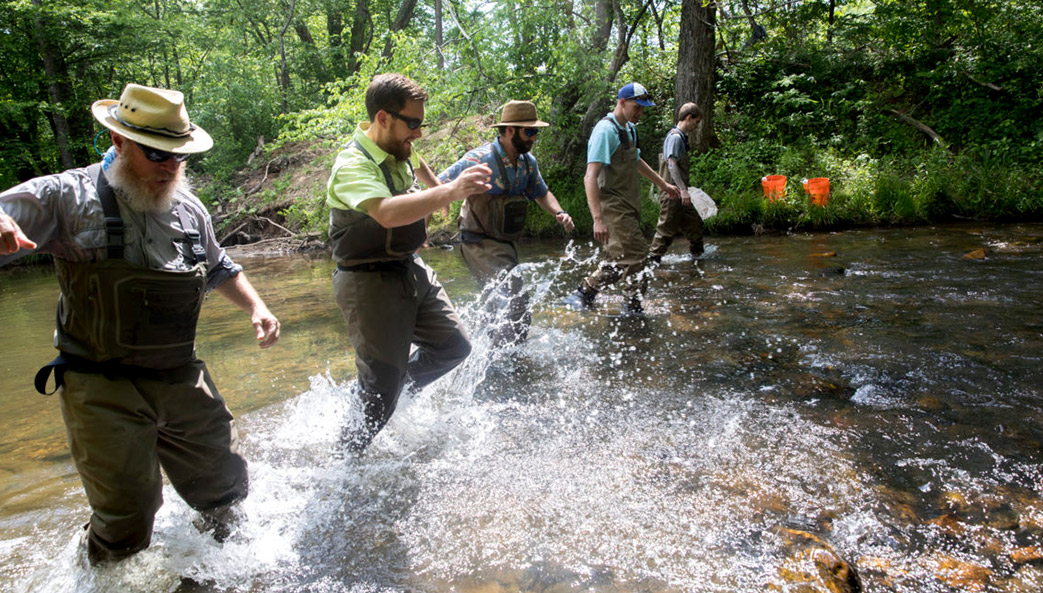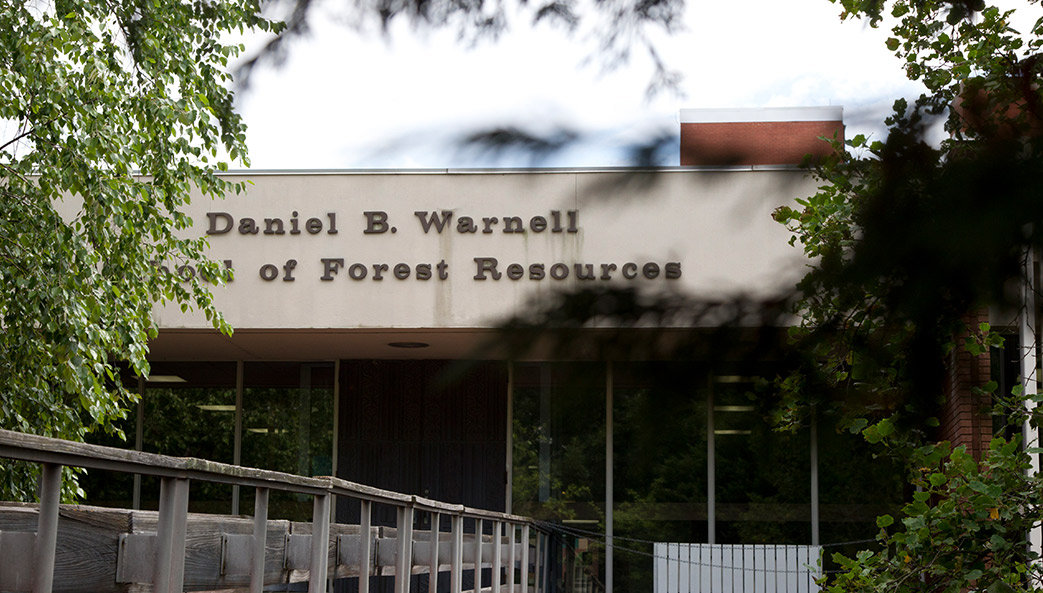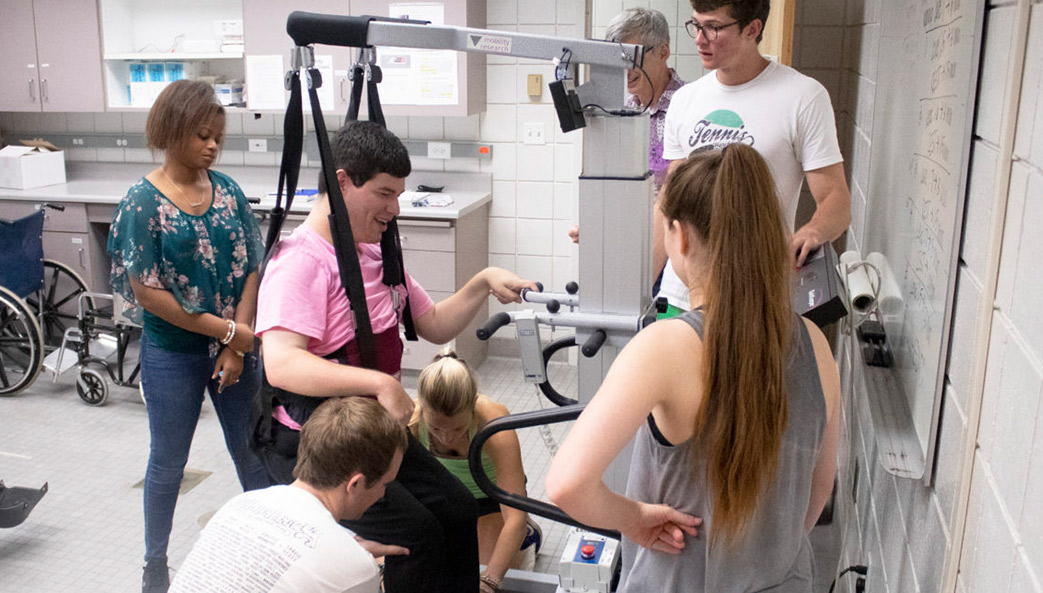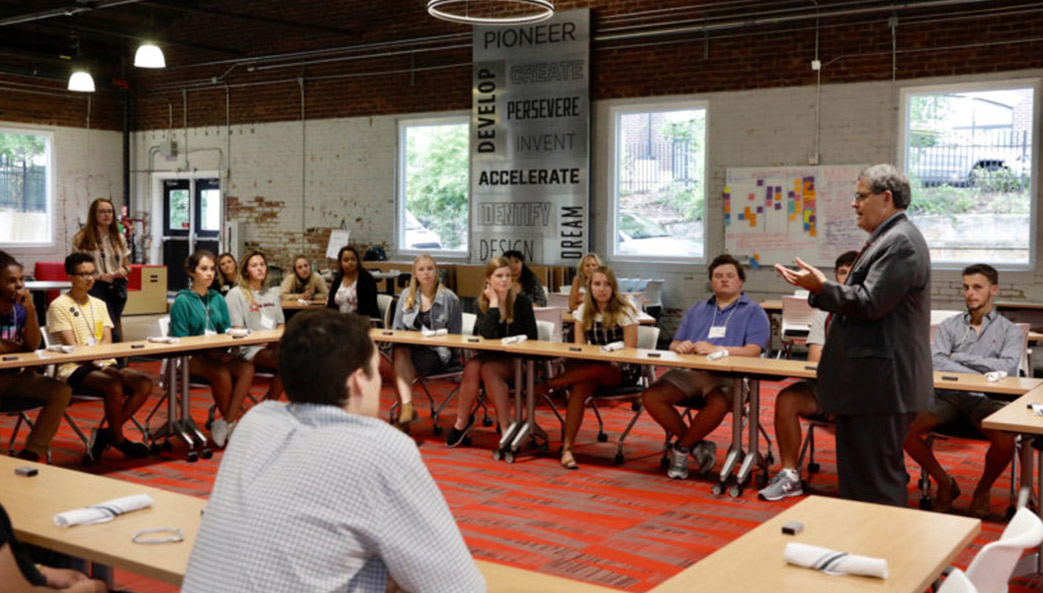There’s no substitute for real-world experience, and that’s just what students in the University of Georgia’s Warnell School of Forestry and Natural Resources got during a Maymester course that teaches some of the essential skills required for aspiring fishery experts.
Armed with nets, waders, snorkels and diving masks, the students visited several sites stretching from Georgia’s coast to its cool mountain streams. At each site, they learned fish collection and identification skills for the state’s freshwater and coastal fishes as well as conservation issues affecting environments across the state.
Alex Pelletier, an undergraduate student in Warnell and course participant, became interested in fisheries when he was a high school student, but he wasn’t sure if he wanted to focus on math, science, engineering or some combination of those disciplines.
“I realized while I was on the water fishing one day that if I were to study ecology or fisheries, I wouldn’t have to choose just science or just math or just engineering,” he said. “This career would allow me to do all of those things.”
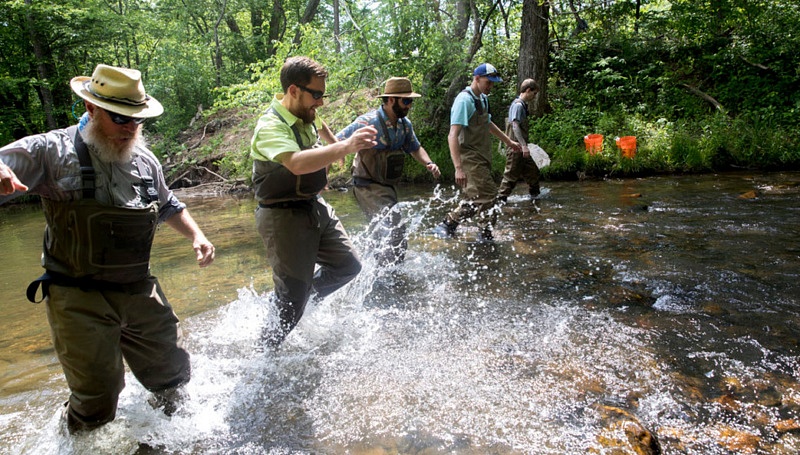
Students camp out during their field work, often cooking over an open fire and discussing the day’s work with their professors.
“That makes for a much deeper, richer experience by the end of the class,” said James Shelton, associate professor of fisheries in the Warnell school and co-instructor for the course. “It gives them a really good idea of what they’ll be doing when they go out there to make a living.”
In a class setting, students often learn about different fish species by looking at illustrations in books, but those don’t always reflect what’s seen in the real world.
“The diversity of the fish when you go to different basins is incredible,” said Savannah Schell, an undergraduate in Warnell who also participated in the course. “When you go to a different river, that fish may be the same species, but it may not have the same characteristics. Getting to see those fish in the field really helps you see how that fish varies from the illustration in the book.”
This course is one of more than 3,500 experiential opportunities for undergraduate students at UGA, which is the nation’s largest institution where experiential learning is mandatory for all undergraduates who have enrolled since fall 2016.
“Obviously this is a very applied class, but we think it’s really important that in addition to traditional lectures that students get their hands wet, get their hands dirty and see what it means to actually manage natural resources like fish and other aquatic forms of life,” Shelton said.
The course, “Georgia Fishes Field Study,” is offered every year during a summer semester.



